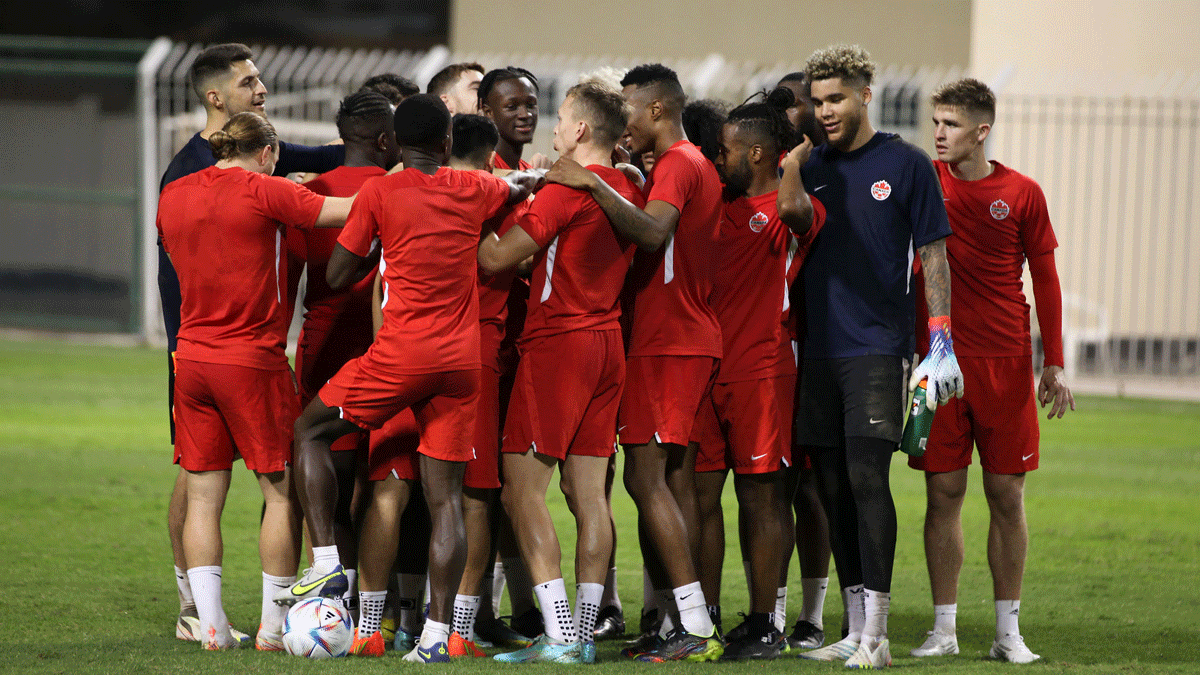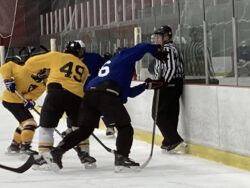As I watch Canada play at its first World Cup soccer tournament in 36 years, I find myself with competing allegiances to two nations: the country I was born in and the country where I have lived most of my life.
But with Canada and Brazil participating in the 32-nation event in Qatar, I’ve also got twice as much to cheer about.
Being born in Brazil means soccer (or what is properly called football) is not only a major cultural force, but it is practically coursing through my blood. Soccer is not my favourite sport, but every four years it magically dissolves all the others, like a soccer fever.
I need to know who is playing who, what the final scores are and who will be advancing.

Soccer is the easily the most popular sport in Brazil, which is not surprising considering we are global leaders in the game. I have been living in Canada since 2008; that’s a total of four World Cups (including 2022) and I always feel like these tournaments tie me back to home.
‘Being born in Brazil means soccer (or what is properly called football) is not only a major cultural force, but it is practically coursing through my blood.’
No country has won more World Cups than Brazil, which has taken home the trophy five times. Brazil is also the only country to have played in all 22 tournaments since World Cup competition began in 1930.
To understand Brazilian soccer culture, you need to know one thing. Often the first time you meet somebody — maybe a friend of a friend, or a new co-worker — along with questions such as, “What is your name?” and “Where are you from?” comes, “Which soccer club do you cheer for?”
The Brazilian national tournament has a major impact on the lives of most Brazilians, occupying their thoughts and framing their conversations.
And when it comes to international play, of course, all Brazilians are on the same side, cheering on their national team.
Certain past World Cup results are deeply embedded in national culture. I don’t personally remember Brazil’s last World Cup championship in 2002 — I was only a year old — but many people still talk about that moment as one of pure joy and happiness .
Throughout my life, I have grown up knowing about the 2002 win and remember experiencing the losses since.
‘With Canada and Brazil competing together on soccer’s biggest stage in their respective preliminary groups, I’m cheering for Canada, too. Brazil is such a powerhouse in soccer; but now I’m also cheering for the underdog Canadians along with my friends in this country.’
There is one truly traumatic memory of the World Cup infused in Brazilians’ collective culture. The one that cuts deepest for Brazilians was the country’s 7-1 loss to Germany in a semi-final match in the 2014 World Cup. Even worse, Brazil hosted the tournament that year, so the lopsided loss happened in front of our own eyes.
In Brazil, the term “7-1” has become a synonym for disappointment, embarrassment and uttermost sadness. It’s like this: miss the bus by a few seconds and you might say, “Worse than this, only 7-1”.
I try to watch most games throughout the month-long tournament, but I have never before felt conflicted between two teams. It used to be a no-brainer: cheer for Brazil until they get eliminated, then either shift to cheering for the country that beat Brazil — so we can live on knowing they we lost to the eventual World Cup champions — or cheer against the team that beat Brazil to rain on their parade.
This year, my cheering is definitely taking a different route.
With Canada and Brazil competing together on soccer’s biggest stage in their respective preliminary groups, I’m cheering for Canada, too. Brazil is such a powerhouse in soccer; but now I’m also cheering for the underdog Canadians along with my friends in this country.
In the past, Brazil and Canada have faced each other in the Olympics or Pan Am Games, but in these kinds of events the two countries play a wide variety of sports — so I can divide my cheering between the two.
In this year’s World Cup in Qatar, the Canadian team has its work cut out for it. Canada has lost 1-0 to Belgium despite playing a great opening game and dropped the match against Croatia 4-1, despite getting off to a great start with a goal by Alfonso Davies. The team has one game left.
Team Brazil won its first game over Serbia 2-0. It plays Switzerland on Nov. 28.
I am not saying they are “underdogs” in any way to jinx the Canadian team or discourage them from winning — especially since they have enlisted coach John Herdman from the Canadian women’s soccer team, which is the reigning Olympic champion and which previously won two Olympic bronze medals and a Pan Am Games gold.
Brazil is widely viewed as a favourite to win this year’s World Cup in Qatar. I may be biased, but if the team members are able to play as well as they can, they are definitely going to be take the title.
And while I support two teams at this year’s World Cup, I do need to make one thing clear: if, in a future competition, Canada and Brazil would end up facing each other in a tournament — I will show no mercy in cheering for Brazil and yelling for Canada to lose.




